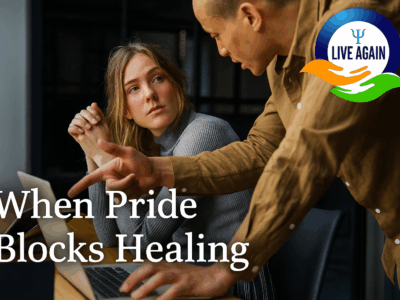Human Emotions
We humans are unique in our abilities to experience a wide range of vivid emotions; that can greatly impact on our mental life. Emotions like happiness, sadness, anger, fear, and excitement and so on can affect our, thoughts, behavior and overall well-being. Life may not always seem fair, some days bring us joy, happiness, and positive experiences that make us feel good. And other hand, there are days when many of us face challenges, difficulties, moments of sadness, disappointment, or even misery.
What do you mean by emotional grief?
Grief is one of the natural emotional state and response, where someone loss something precious to them, typically associated with the death of a loved one, it can also be caused by other significant losses such as the end of a relationship, loss of a job, or a major life change. It involves a range of negative emotions such as sadness, anger, guilt, and disbelief. Normal grief typically follows a predictable course of duration and tends to lessen over time, allow individuals to adjust and find meaning in their loss.
Understanding pathological grief?
However, pathological grief is different from grief, this involves persistent and intense emotional pain that does not improve with time. Pathological or prolonged grief is also known as complicated grief, refers to a more severe and prolonged form of grief that significantly impairs an individual’s ability to function and adapt to life without the deceased or the losses. It may also be accompanied by intrusive thoughts, preoccupation with the deceased, difficulty accepting the loss, and an inability to engage in daily activities.
Pathological grief can persist for months or even years after the loss and can have a profound impact on mental health and wellbeing of the individual.
Symptoms of pathological grief may include:
- Intense feelings of guilt or self-blame.
- Difficulty experiencing positive emotions.
- Difficulty accepting the death or loss.
- Feeling emotionally numb or disconnected from others.
- Intrusive thoughts or images related to the loss.
- Intense and persistent longing or yearning for the deceased.
- Preoccupation with thoughts or memories of the deceased.
- Difficulty engaging in activities or maintaining relationships.
- Persistent feelings of emptiness or meaninglessness.
- Emotional numbness or detachment.
- Intense emotional pain and sadness.
- Feelings of emptiness or a loss of purpose in life.
Pathological grief can have a profound impact on an individual’s mental health and overall wellbeing. It can lead to various psychological difficulties, such as severe depressive symptoms, anxiety, social withdrawal, impaired concentration, sleep disturbances, and even increased risk of suicidal ideation or behaviors. It can also affect physical health, including weakened immune system functioning.
When it comes to the treatment of pathological or prolonged grief, a comprehensive and individualized approach is essential. Some scientific-evident based therapeutic approaches are:
- Grief counseling: This involves engaging in supportive and empathetic conversations with a trained professional who specializes in grief support. It provides a safe space for expressing emotions, understanding the grieving process, and developing coping strategies.
- Cognitive-behavioral therapy (CBT): CBT helps individuals address problematic thoughts and behaviors associated with their grief. It aims to identify and challenge negative thought patterns, develop healthier coping strategies, and gradually adjust to life without the deceased or the loss.
- Medications: In some cases, medications such as antidepressants may be prescribed to help manage associated symptoms of depression or anxiety. However, they are typically used in conjunction with therapy and under the guidance of a healthcare professional.
- Self-Care and Coping Strategies: Encouraging self-care activities such as exercise, proper sleep, maintaining a healthy diet, and engaging in hobbies or activities that bring joy can help individuals manage the emotional pain of grief.
- Support groups: Participating in support groups with others who have experienced similar losses can provide a sense of belonging, validation, and understanding. Sharing experiences and emotions with others can be therapeutic and offer support during the grieving process.
This is important to understand that the treatment approach may vary depending on the individual’s specific needs and circumstances. Seeking professional help from psychologists or psychiatrist can provide the necessary guidance and support throughout the healing process.
Pathological or prolonged grief is a more intense and prolonged form of grief that significantly impacts a person’s mental health and wellbeing. Recognizing the symptoms and seeking appropriate support and treatment can assist individuals in navigating their grief, finding meaning, and moving towards healing and recovery.
For more personalized need based guidance and treatment, talk to your mental health professionals. Consult to a psychologist or psychiatrist.
Your life is precious, take care of yourself and family. You are not alone. We are standing by you.
Life is beautiful.
Live it fully. Say yes to life. Welcome to life.



